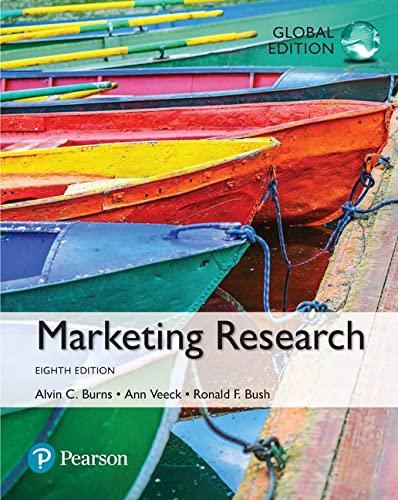This case was provided by Professor Daniel Purdy, Lecturer, and Professor Wendy Wilhelm, Professor of Marketing, both
Question:
This case was provided by Professor Daniel Purdy, Lecturer, and Professor Wendy Wilhelm, Professor of Marketing, both of Western Washington University. The College of Business at Western Washington University is a full-service business school at a midsized regional university. The College of Business specializes in undergraduate business education with selected graduate programs. While the college emphasizes mostly professional education, it does so within a liberal arts context. Business majors range from standards such as accounting, marketing, and finance to more unique offerings, such as the highly successful manufacturing and supply chain management degree. The college is committed to a student-centered style of education that emphasizes the students not as customers but as equal stakeholders in the process of education. As part of its commitment to involving the students as true partners, the college has recently begun the process of conducting focus groups of undergraduate and graduate students. The objective of these focus groups is to identify negative and positive attitudes about the college and develop new ideas to improve the college. The following is an excerpt from the transcript of the first undergraduate focus group. This group included 14 students with the following makeup: 50% male and 50% female; 93% work part-time or more, and 7% do not work; and 29% management majors, and other majors no more than 15% each.
Moderator: So what do you guys think are some ways that the college (not the university) can be improved?
Jeff : I like the fact that professors are accessible and willing to help, and a lot of them let us call them by their first name. Something that I think could be better is that we don’t spend enough time learning how to do things but instead professors spend too much time talking about theory.
Sarah: Yeah, I agree. It seems like most of the time we aren’t learning practical skills but just talking about what we “should” do, not learning how to do it.
Moderator: Interesting points. How would you suggest the college try to increase the amount of practical learning?
Todd: It would be cool if we could do more real-life professional work in our classes. Things like skill-based projects that focus on doing what we would do in our profession.
Tim: I think we should all have to do a mandatory internship as part of our major. Right now, some majors let you do it as an elective, but they are hard to find and get.
Moderator: Good ideas. Are there other things you think we could improve?
Rhonda: I agree that the professors try hard to be open to students, but the advising is not very good.
I don’t know how to fix it, but I know my advisor is pretty much useless.
Ariel: I know, I know. It is so frustrating sometimes. I go to my advisor and she tells me to just fill in my degree planning sheet and she’ll sign it. It’s like they don’t even know what I should be taking or why.
Jon: My advisor is kind of funny. He just tells me that he doesn’t know that much about classes he doesn’t teach and my guess is as good as his. At least he’s honest anyway.
Moderator: OK, so the advice you are getting from the faculty leaves a little to be desired. What do you guys do to figure out how to plan your degrees if your advisors aren’t helping much?
Sarah: I just ask my friends who are further along in the major than I am.
Mark: Yeah, me too. In the Student Marketing Association we all give each other advice on what professors are good, what classes go well together, which have prerequisites and stuff like that. It would be cool if we could have something like that for the whole college.
Moderator: Do you think the college could be improved if we developed some sort of peer-advising program?
Using these excerpts as representative of the entire focus group transcript, answer the following questions:
1. Do you think focus groups were the appropriate research method in this case, given the research objectives? What other type(s) of research might provide useful data?
2. Evaluate the questions posed by the moderator in light of the research objectives/question:
(a) Are any of them leading or biased in any way?
(b) Can you think of any additional questions that could or should be included?
3. Examine the findings. How is the college perceived?
What are its apparent strengths and weaknesses?
4. Can we generalize these findings to all of the college’s students? Why or why not?
Text: By permission, Mr. Daniel Purdy and Dr. Wendy Wilhelm, Western Washington University.
Step by Step Answer:

Marketing Research
ISBN: 9781292153261
8th Global Edition
Authors: Alvin C. Burns, Ronald F. Bush, Ann F. Veeck





